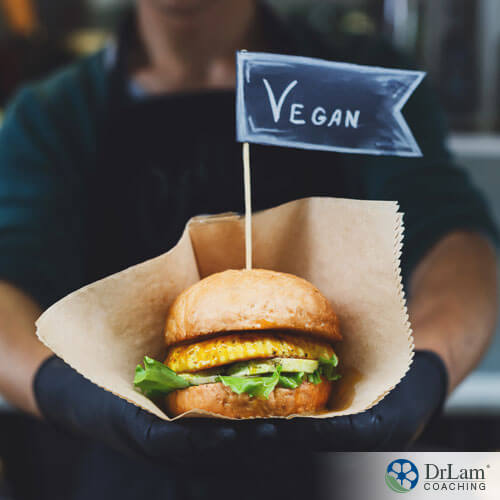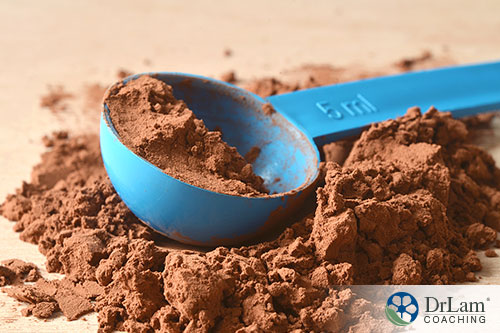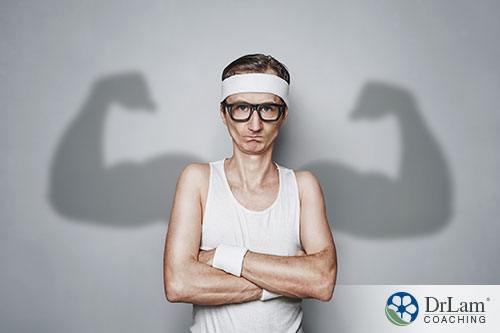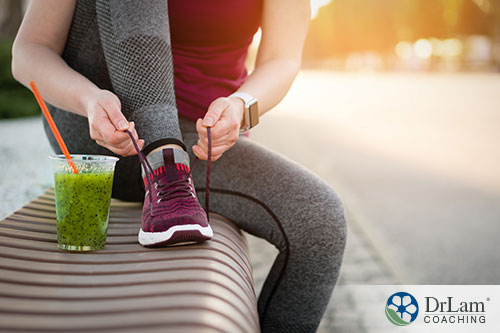 Do you feel the desire to get a bit more in shape? Perhaps shed a few pounds, tone up a bit, or increase your muscles? Summer and new years are often the most popular times to work towards these fitness goals, and with the right mindset and knowledge, you can change your lifestyle at any time. Many diets including the keto and the paleo diets are increasingly becoming popular because of the health benefits they offer. Vegan diets have also gained a tremendous amount of popularity amongst those who choose to live a greener and cleaner lifestyle, and veganism is now entering the fitness niche as well. Many athletes follow vegan muscle building diets. You may be one of the many who believe the misconception that you can’t build muscle on a vegan diet, however it is entirely possible to achieve vegan muscle building with the help of a vegan diet. It is a safe and healthy way to get stronger and bulk up a bit.
Do you feel the desire to get a bit more in shape? Perhaps shed a few pounds, tone up a bit, or increase your muscles? Summer and new years are often the most popular times to work towards these fitness goals, and with the right mindset and knowledge, you can change your lifestyle at any time. Many diets including the keto and the paleo diets are increasingly becoming popular because of the health benefits they offer. Vegan diets have also gained a tremendous amount of popularity amongst those who choose to live a greener and cleaner lifestyle, and veganism is now entering the fitness niche as well. Many athletes follow vegan muscle building diets. You may be one of the many who believe the misconception that you can’t build muscle on a vegan diet, however it is entirely possible to achieve vegan muscle building with the help of a vegan diet. It is a safe and healthy way to get stronger and bulk up a bit.
People often believe that the road to building muscle is through intense and strenuous workouts as well as increasing their animal meat consumption. Although animal meat protein is a great way to build up the muscles, having meat is not compulsory if you want to build your muscles and strengthen it. Besides, it is definitely not the healthiest option. There are many other ways to keep the muscles strong, and vegan muscle building is one of them. A vegan diet has many health benefits such as reducing the risk of heart disease, controlling glucose levels, and choosing a greener lifestyle in which we lower our carbon footprint.
You can achieve vegan muscle building by choosing a vegan diet. This diet is full of whole grains, fruits, vegetables, beans, peas, nuts, and seeds and has many more benefits including:
As you can see, if practiced effectively, eating a vegetarian and a vegan diet improves the health and well-being of a person. In addition to all the nutrients they provide, some plant-based foods are also a very healthy source of protein. This is why many athletes and people have chosen to add vegan muscle building approaches to their wellness regimes.
Proteins from plants and animals are made up of amino acids, which are considered the building blocks of life. They are needed for every vital process in the body including the synthesis of hormones, neurotransmission to and from the brain, and mood improvement. Amino acids are compounds that are composed of carbon, hydrogen, nitrogen and oxygen. The human body needs 20 types of amino acids to function efficiently, 9 of which are considered essential. Our body can not produce the essential amino acids on its own, but obtain it from food. The nine essential aminos contribute to the production of energy, growth, the functioning of the immune system and the absorption of nutrients.
Consuming protein is an important component of a healthy diet and overall lifestyle. But it is vital to consume the right type of protein in the correct amount, especially if you are considering vegan muscle building.
 It is important to consume high amounts of protein to get the energy needed for an active lifestyle. Therefore, correct amount of protein in the diet is necessary for your overall wellness. Most importantly, you must avoid protein deficiencies. To prevent this, it is recommended that you consume one gram of protein for every 2.75 pounds of weight. If you have specific goals in mind, such as becoming stronger and increase muscle size, even vegan muscle building, protein goals need to be set higher. On average, if you are optimizing your fitness regimens, you should increase your daily protein intake by 1 gram per pound. For simplicity, that would mean 25 to 30% of your plate would be composed of protein.
It is important to consume high amounts of protein to get the energy needed for an active lifestyle. Therefore, correct amount of protein in the diet is necessary for your overall wellness. Most importantly, you must avoid protein deficiencies. To prevent this, it is recommended that you consume one gram of protein for every 2.75 pounds of weight. If you have specific goals in mind, such as becoming stronger and increase muscle size, even vegan muscle building, protein goals need to be set higher. On average, if you are optimizing your fitness regimens, you should increase your daily protein intake by 1 gram per pound. For simplicity, that would mean 25 to 30% of your plate would be composed of protein.
Not all proteins are created equal. If you are considering vegan muscle building, it is important to understand the plant based protein sources. Even though animal proteins are well known sources of protein, there are some vegan foods that have a high protein content.
 It is important to be cautious before embarking on a diet for vegan muscle building. Most experts agree that a large variety of plant-based foods are necessary to meet all the daily nutritional requirements, for vegan muscle building. However this volume of plant based food is often impossible to consume at every meal. This means that you will most likely need to add protein supplements in your routine to fulfil the daily requirement. There are a wide range of supplements available in the market, including protein powder made from whole foods, hemp or sprouted quinoa. Please note that whey-based powders, are not vegan, and they are also a processed food.
It is important to be cautious before embarking on a diet for vegan muscle building. Most experts agree that a large variety of plant-based foods are necessary to meet all the daily nutritional requirements, for vegan muscle building. However this volume of plant based food is often impossible to consume at every meal. This means that you will most likely need to add protein supplements in your routine to fulfil the daily requirement. There are a wide range of supplements available in the market, including protein powder made from whole foods, hemp or sprouted quinoa. Please note that whey-based powders, are not vegan, and they are also a processed food.
A vegan muscle building plan should include the option of supplementing food with Omega 3s, vitamins B and D which can all help protein metabolism.
Soy is a great source of vegan protein that contains all nine essential amino acids. It is usually a good choice for vegan muscle building. However, there is a lot of debate about the link between soy and hormone levels. Many studies suggest that soy can negatively influence some cases of breast cancer, or alter the hormone levels in the body. There is one exception however, tempeh, a fermented soy product, is not found to cause any harm even if eaten 3 or 4 times a week.
It is always good to make dietary changes for vegan muscle building with a bit of caution, especially if you suffer from any chronic illnesses. Check with your health care practitioner if you think soy may be aversive to your body. Many people who suffer from hormone regulating illnesses such as Adrenal Fatigue Syndrome (AFS) are no longer able to meet the body’s demand for hormones. Given their already fragile state, soy products may cause further reactions if eaten.
If you are vegan muscle building and unsure if your protein intake is sufficient, it is always good to get professional help from registered dieticians. With help, you can develop a food plan that works best for you. Veganism in itself is not easy, and can become very tricky if the objective is vegan muscle building. To stay on track and meet your vegan muscle building goals, talk to a nutritionist about your new diet.
It is important to remember that building muscle in your body needs exercise along with the proper diet. Although food is a major factor in muscle building, it is imperative that you engage in proper strength training activities.
If you are suffering from AFS, it is important to find an expert who knows whether a vegan diet is right for you during your recovery. Starting a vegan diet, suddenly, even with good intentions, could backfire and worsen your AFS.
 When you turn to vegan muscle building for your fitness needs, use caution not to fall into the common “vegan” traps. People often misunderstand veganism by thinking that they are able to consume anything that is not animal-based. This is however not true when it comes to healthy eating. It is important to remember that the quality of the vegan diet matters more than its quantity. Always choose clean sources of plant-based foods and proteins. As they start a vegan diet, many people experience a lack of energy and bloating. Do not rush into a strict regime, instead take your time to transition. Also drink plenty of water, eat slowly, cook the vegetables and use supplements like probiotics for ease of digestion. You vegan muscle building is achievable if you follow the guidance of experts and transition effectively.
When you turn to vegan muscle building for your fitness needs, use caution not to fall into the common “vegan” traps. People often misunderstand veganism by thinking that they are able to consume anything that is not animal-based. This is however not true when it comes to healthy eating. It is important to remember that the quality of the vegan diet matters more than its quantity. Always choose clean sources of plant-based foods and proteins. As they start a vegan diet, many people experience a lack of energy and bloating. Do not rush into a strict regime, instead take your time to transition. Also drink plenty of water, eat slowly, cook the vegetables and use supplements like probiotics for ease of digestion. You vegan muscle building is achievable if you follow the guidance of experts and transition effectively.
© Copyright 2020 Michael Lam, M.D. All Rights Reserved.
There are many benefits to vegan muscle building because of the health benefits of eating a plant-based diet. Vegans are 75% less likely to have high cholesterol, and lowers the risk for terminal cancers by approximately 15%. Eating legumes lowers the risk of colorectal cancer by 9 to 18%.
